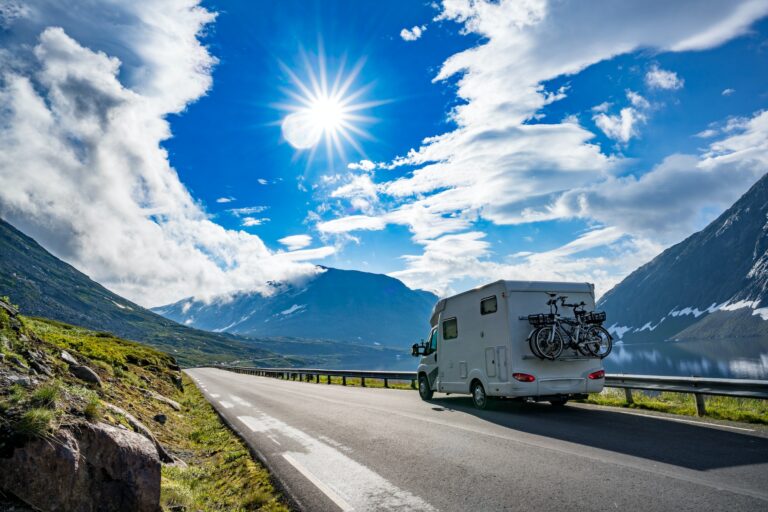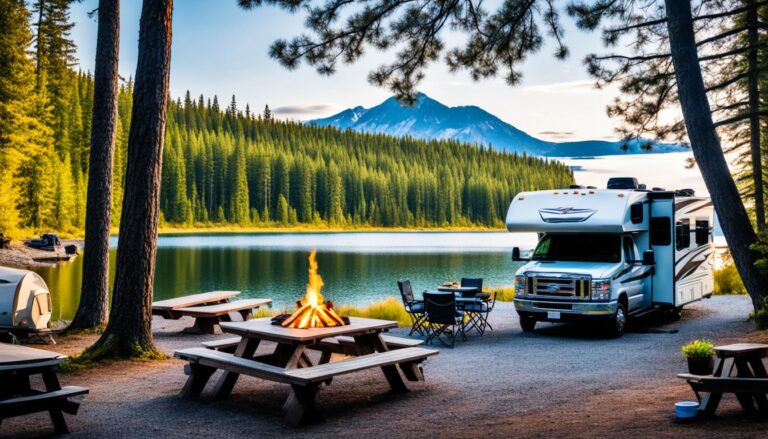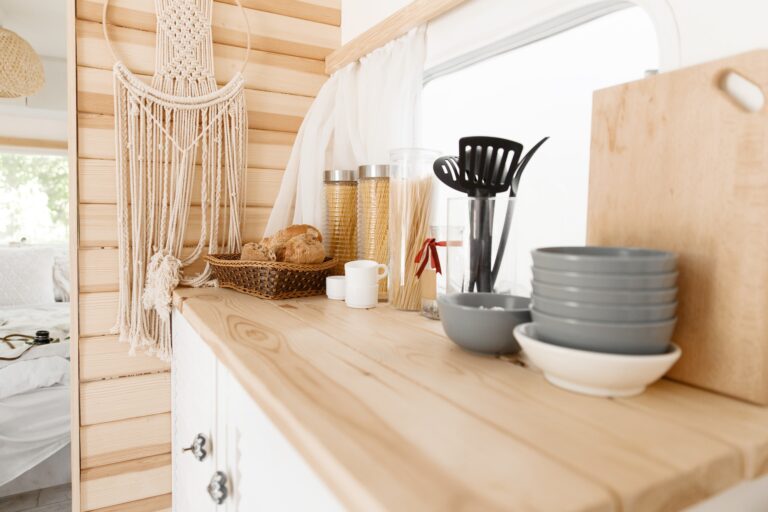Choosing the right type of RV can be an overwhelming task, especially if you’re new to the world of recreational vehicles. There are so many different options to choose from, each with its own unique set of features and benefits. In this blog post, we’ll take a closer look at the different types of RVs available and help you determine which one is right for your needs.
Before we dive into the different types of RVs, it’s important to consider your needs and preferences. Ask yourself the following questions:
- How many people will be traveling with you?
- How long will your trips typically be?
- What is your budget?
- Will you be driving or towing your RV?
- Do you prefer a specific type of camping experience?
How many people will be traveling with you?

The number of travelers is a critical factor to consider when choosing an RV. If you plan to travel with a large family or a group of friends, you will need an RV that has plenty of sleeping space and seating. A larger RV with multiple bedrooms, a full bathroom, and a spacious living area may be the ideal choice for you. This will ensure that everyone has their own space and can move around freely.
However, if you are traveling alone or with a partner, a smaller RV may be more suitable. A smaller RV will be easier to maneuver and will require less fuel. Additionally, it will be more cost-effective than a larger RV. A smaller RV can be more comfortable and intimate, providing a cozy space for a couple or solo traveler.
When selecting an RV, it’s important to ensure that it has enough sleeping space for everyone. Some RVs come with bunk beds, convertible sofas, and dinettes that can be transformed into beds. Others have a separate master bedroom with a queen or king-size bed. You’ll want to choose an RV that has enough sleeping space for everyone to get a good night’s sleep.
Another important consideration when selecting an RV is seating. You’ll want to ensure that there is enough seating for everyone to comfortably sit and relax. Some RVs have a large living area with a sofa and chairs, while others have a dinette that can be used for meals and games.
In summary, the number of travelers is a critical factor to consider when selecting an RV. It’s important to ensure that there is enough sleeping space and seating for everyone to be comfortable. Whether you’re traveling with a large family or solo, there is an RV that can accommodate your needs.
How long will your trips typically be?
The duration of your trips is an important consideration when selecting an RV. If you’re planning on taking long trips, you’ll want an RV that has plenty of amenities and is comfortable enough to keep you happy for extended periods. You’ll need to consider things like kitchen appliances, bathroom facilities, and entertainment options, as well as the overall size and layout of the RV.
For example, if you plan on taking a cross-country trip that lasts several weeks, you’ll want an RV with a full kitchen that includes a stove, oven, microwave, refrigerator and maybe an outdoor kitchen. This will allow you to prepare your meals and snacks without relying on restaurants or fast food. Additionally, you’ll want to ensure that the RV has a comfortable bathroom with a shower and toilet, so you don’t have to rely on public facilities.
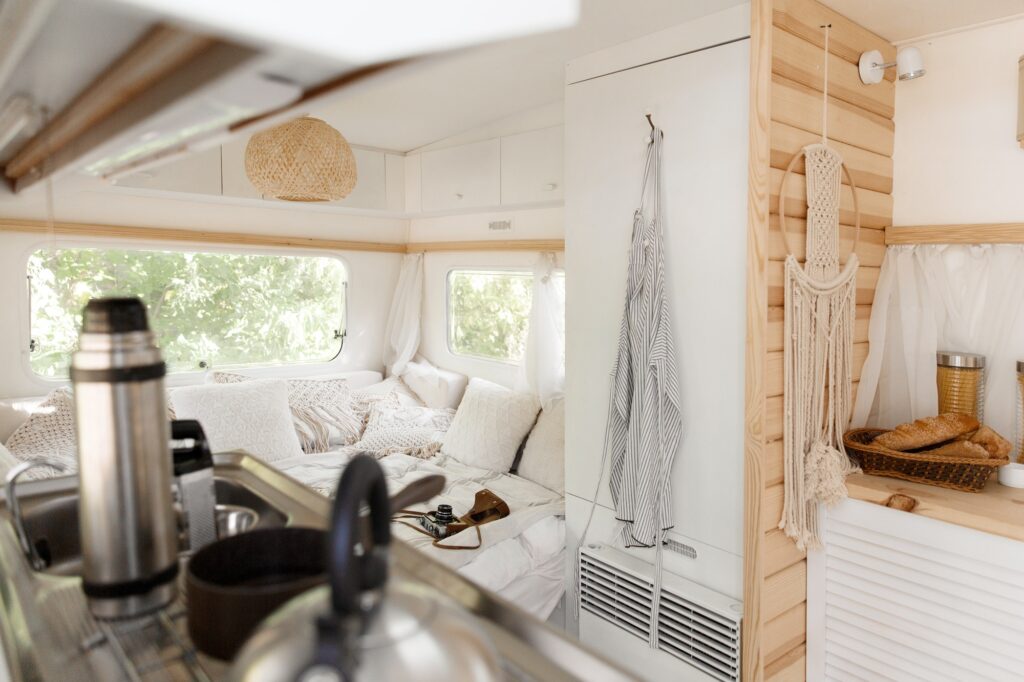
On the other hand, if you’re planning on taking shorter trips, a smaller RV with fewer amenities may be more appropriate. A smaller RV will be easier to drive and set up at campsites, making it a great choice for weekend getaways or quick trips. A smaller RV may have a smaller kitchen or bathroom, but it will still have everything you need to enjoy your trip.
When selecting an RV based on trip duration, you’ll also want to consider the size and layout of the RV. A larger RV may provide more amenities and space, but it will also be more challenging to drive and maneuver, especially in tight spaces. A smaller RV may be more maneuverable, but it will have less living space and amenities.
What is your budget?
When considering your budget for an RV, it’s important to take a holistic approach. Not only should you consider the initial purchase price, but also the ongoing costs associated with owning an RV. These costs can include insurance, maintenance, fuel, and camping fees.
If you’re on a tight budget, you may want to consider a used RV or a smaller, more basic model. While these options may not have all the bells and whistles of a brand new, luxury RV, they can still provide a comfortable and enjoyable camping experience.

It’s also important to consider the depreciation of the RV. RVs typically lose value over time, which means that if you plan on selling your RV in the future, you may not recoup the full purchase price. However, if you plan on using your RV for many years, this may not be as big of a concern.
Another consideration is the cost of fuel. Larger RVs typically get lower gas mileage than smaller RVs, which can add up over time. If you’re planning on taking long road trips, you’ll want to factor in the cost of fuel when budgeting for your RV.
Finally, it’s important to factor in the cost of camping fees. While many campgrounds offer affordable rates, some can be quite expensive, especially if you’re looking for a more luxurious camping experience. If you plan on staying in campgrounds frequently, it’s important to factor these costs into your budget.
Do you prefer a specific type of camping experience?
When deciding between driving or towing your RV, there are several factors to consider. One of the biggest considerations is the type of camping experience you’re looking for. If you prefer a more mobile experience, where you can easily pack up and move to a new location without the hassle of towing, then a motorhome may be the better option for you. Motorhomes also provide more space and amenities, making them a great choice for longer trips or full-time RV living.
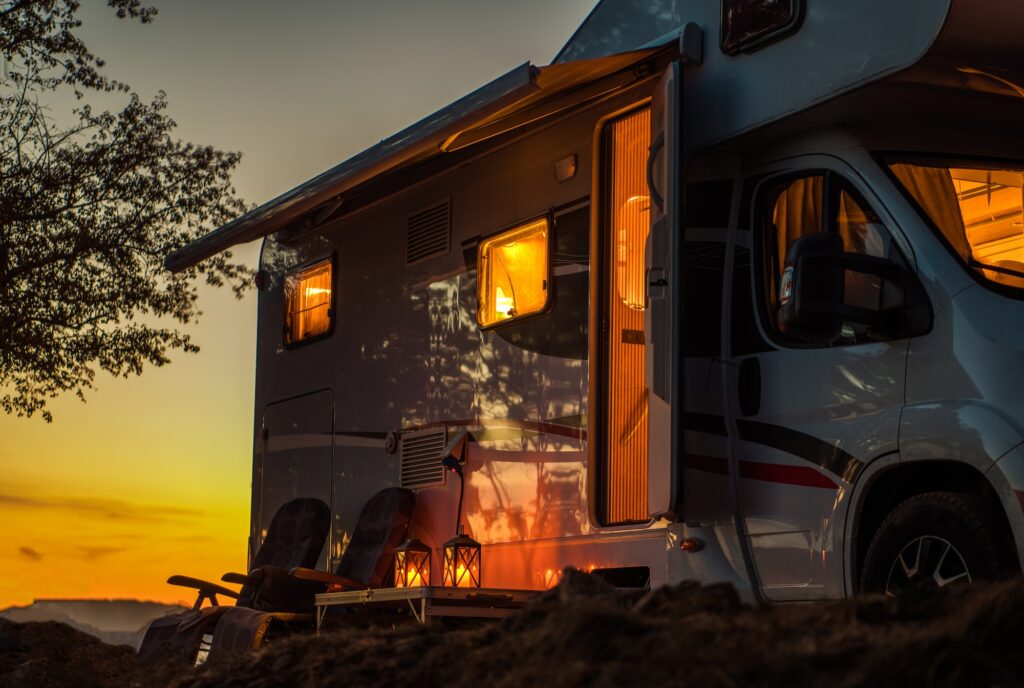
However, if you prefer the freedom and flexibility of being able to unhitch your RV and explore the surrounding area in your tow vehicle, then a travel trailer or fifth wheel may be the better option for you. These options are also typically less expensive than motorhomes, making them a more budget-friendly choice for many people.
Another factor to consider is driving and maneuvering. Motorhomes are typically easier to drive than towing a trailer, as they have a smaller turning radius and are designed for long-distance travel. However, if you’re not comfortable driving a larger vehicle, then a travel trailer or fifth wheel may be the better option for you, as you can simply hitch and unhitch it from your vehicle when you reach your destination.
Finally, it’s important to consider the cost of ownership. Motorhomes are typically more expensive to maintain and repair, as they have more complex systems and components. Towing a travel trailer or fifth wheel may also come with additional costs, such as purchasing a separate tow vehicle and maintaining both the vehicle and the trailer.
Will you be driving or towing your RV?
One of the key advantages of driving a motorhome is that it provides a complete and self-contained living space. This means that you have everything you need in one place, without having to worry about towing a separate trailer or setting up camp every time you arrive at a new location. Motorhomes are also typically more comfortable and luxurious than travel trailers or fifth wheels, with more amenities like larger kitchens, living areas, and bathrooms.
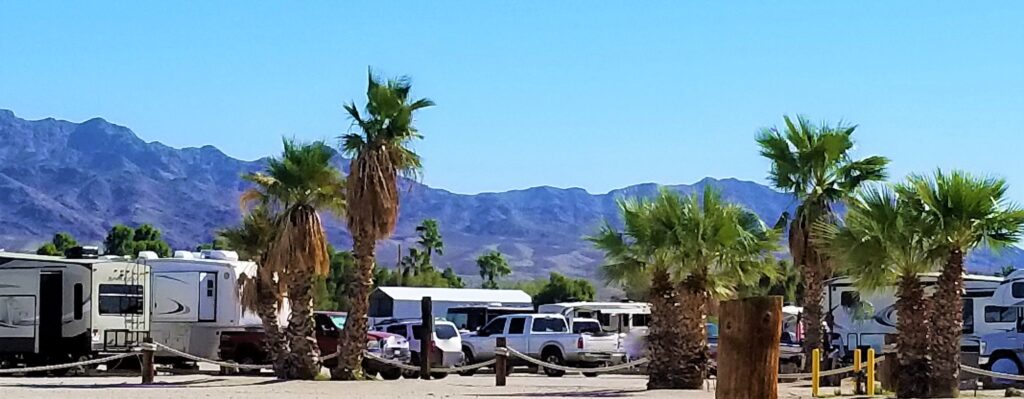
However, motorhomes can also be more expensive to purchase and maintain than travel trailers or fifth wheels. They are larger and heavier vehicles that may require more fuel and more maintenance, and may also be more difficult to maneuver and park in certain areas.
On the other hand, travel trailers and fifth wheels offer more flexibility in terms of transportation. With a travel trailer or fifth wheel, you can use your existing vehicle to tow your RV, which can save you money and allow you to travel more easily in urban areas or other places where larger vehicles may not be allowed.
Travel trailers and fifth wheels also offer a wider range of options in terms of size and layout. They come in a variety of sizes and configurations, so you can find one that best fits your needs and budget. They are also typically less expensive to purchase and maintain than motorhomes, as they do not have a motor or other complex systems that require expensive repairs.
However, towing a travel trailer or fifth wheel requires a bit more planning and preparation. You will need to make sure your vehicle is equipped to tow the weight of your RV, and you will need to take extra care when driving and parking. Setting up camp also requires more time and effort, as you will need to level your trailer and connect it to utilities like water, electricity, and sewer.
Once you have a clear idea of your needs and preferences, you can start exploring the wide variety of RVs available. Here are some of the most common options:
Class A Motorhomes
Class A motorhomes, sometimes referred as diesel pushers are the largest and most luxurious type of RV. They’re built on a bus chassis and often have multiple slide-outs that expand the living space when parked. Class A motorhomes are ideal for long-term travel or full-time living, as they offer plenty of amenities and space for a large family or group. However, they can be difficult to drive and maneuver in tight spaces, and they’re typically the most expensive type of RV.
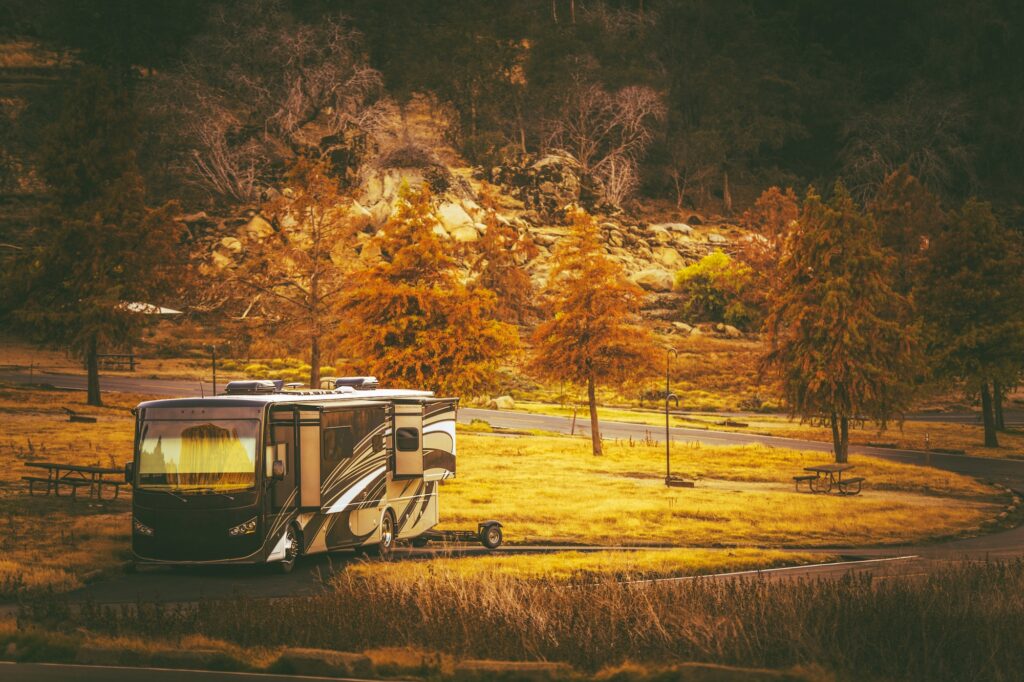
Class B Camper Vans
Class B camper vans are smaller and more compact than Class A motorhomes. They’re built on a van chassis and often have a raised roof that provides extra headroom. Class B camper vans are ideal for solo travelers or couples who want a more nimble and efficient RV. They’re easy to drive and park, and they typically have good gas mileage. However, they don’t offer as much space or amenities as larger RVs, and they can feel cramped for extended periods of time and don’t lend themselves to Full-time RVing for families.
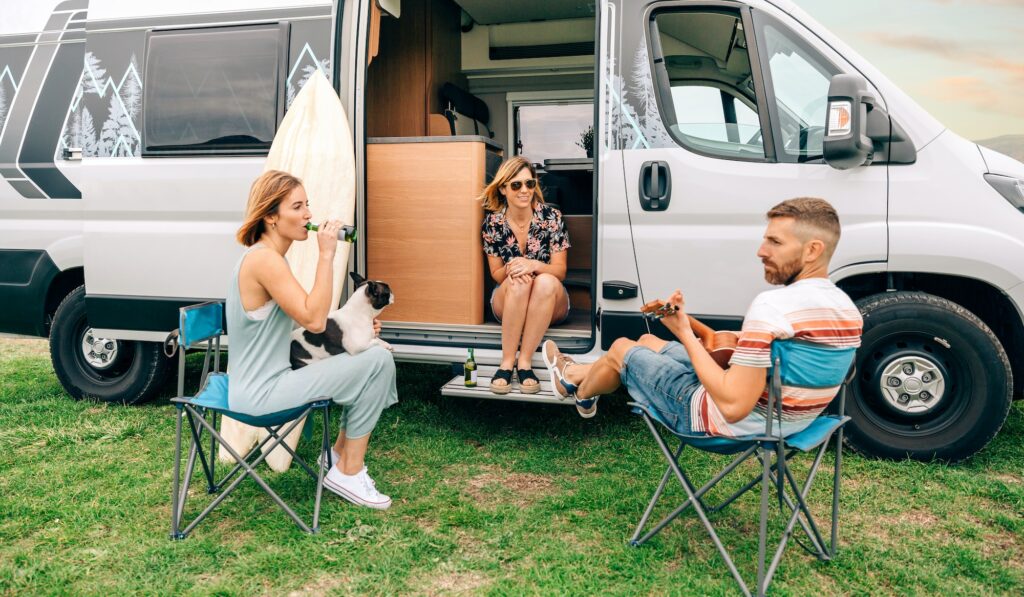
Class C Motorhomes
Class C motorhomes are a middle ground between Class A motorhomes and Class B camper vans. They’re built on a truck chassis and have a distinctive cab-over design that provides extra sleeping space or storage. Class C motorhomes are ideal for families or small groups who want a comfortable and convenient RV. They’re easier to drive than Class A motorhomes, and they offer more space and amenities than Class B camper vans. However, they can be more expensive than Class B camper vans, and they may not be as luxurious as Class A motorhomes.
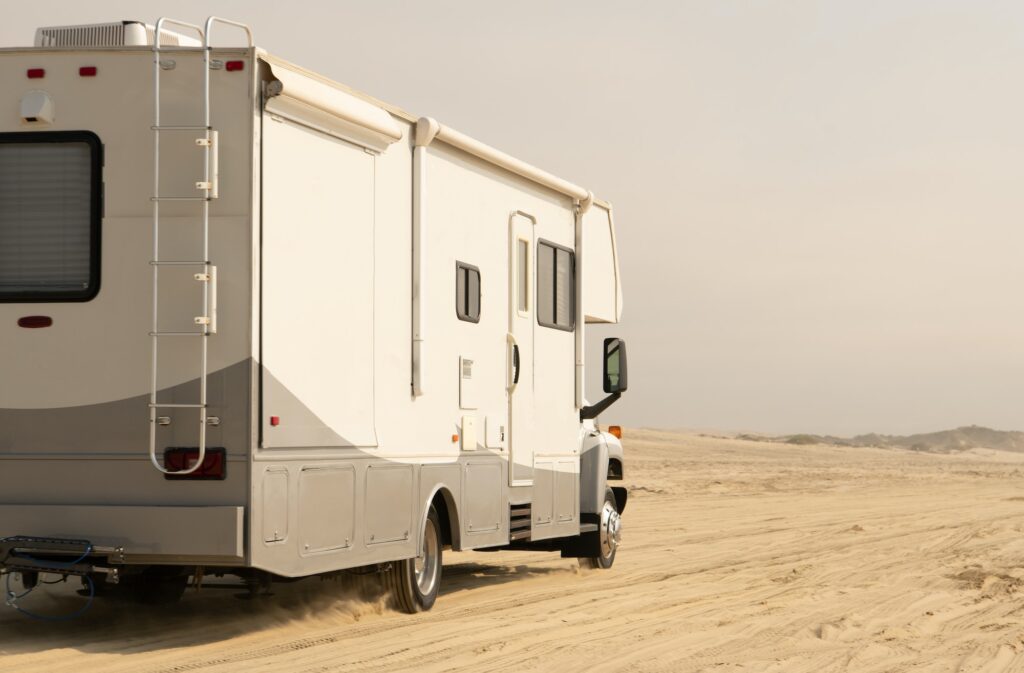
Travel Trailers
Travel trailers are towable RVs that range in size from small and lightweight to large and luxurious. They’re typically less expensive than motorhomes, and they offer more flexibility in terms of parking and setup. Travel trailers can be towed by a variety of vehicles, including trucks, SUVs, and even some cars. They’re ideal for families or groups who want the convenience of a home on wheels with lots of storage and without the cost and complexity of a motorhome. However, they can be more difficult to maneuver than motorhomes, and they require a tow vehicle with sufficient towing capacity.
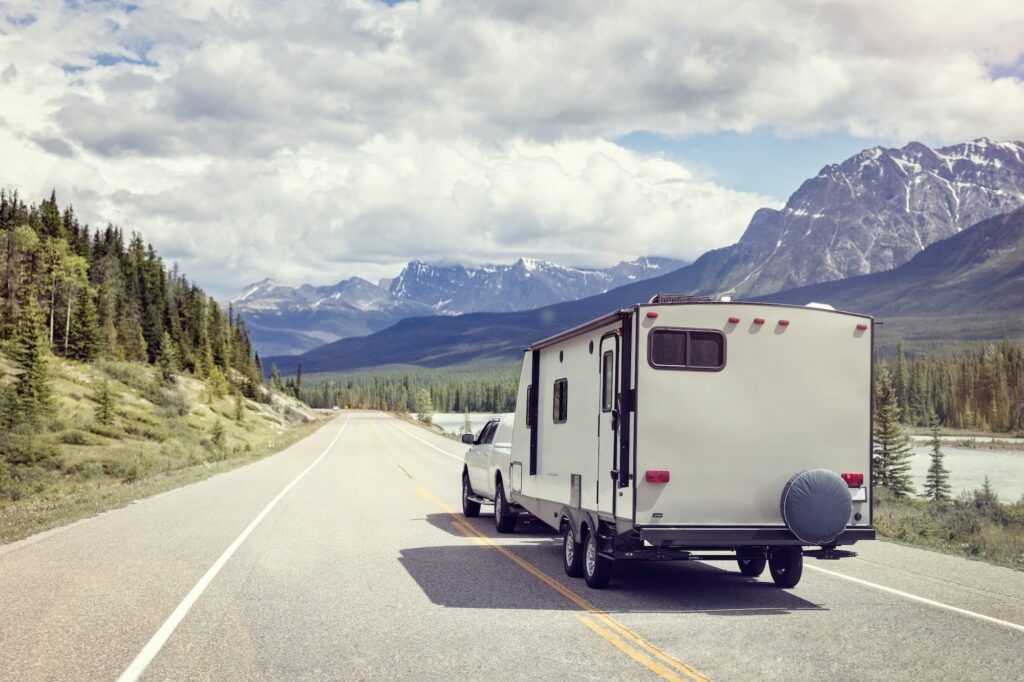
Fifth-Wheel Trailers
Fifth-wheel trailers are a type of travel trailer that’s designed to be towed by a heavy-duty truck with a special hitch. They’re larger and heavier than standard travel trailers, and they often have multiple slide-outs that expand the living space when parked. Fifth-wheels are ideal for long-term travel or full-time living, as they offer plenty of space and amenities. However, they require a specialized tow vehicle, and they can be more difficult to maneuver than standard travel trailers.
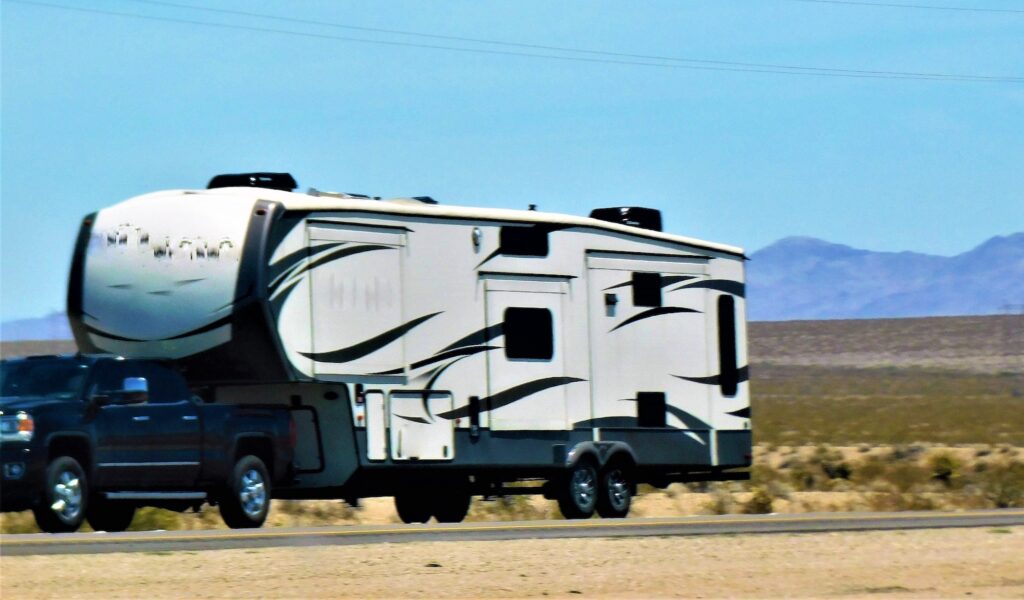
Pop Up Trailers
Pop-up trailers, also known as tent trailers, are a popular type of RV that combines the convenience of a traditional travel trailer with the compactness of a tent. They are lightweight, affordable, and easy to tow, making them a great option for both first-time and experienced RVers. Pop-up campers typically feature a collapsible roof and walls that can be extended and secured to create a comfortable living space with sleeping areas, a small kitchen, and a dining area. While they may lack some of the amenities of larger RVs, pop-up trailers are a great way to enjoy the outdoors while still having a comfortable and convenient place to sleep and relax.
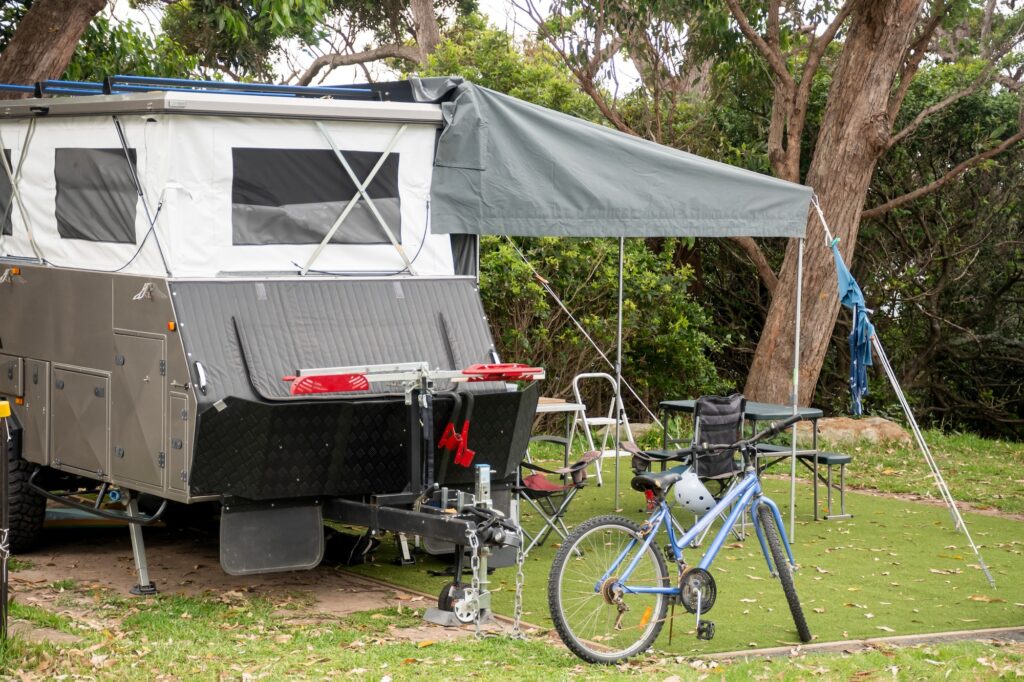
Teardrop trailers
Teardrop trailers are a popular and unique option for those looking for a smaller, more compact RV. As the name suggests, these trailers have a distinctive teardrop shape, with a rounded front and a tapered rear. Despite their small size, teardrop trailers often have everything you need for a comfortable camping experience, including a bed, kitchenette, and storage space.
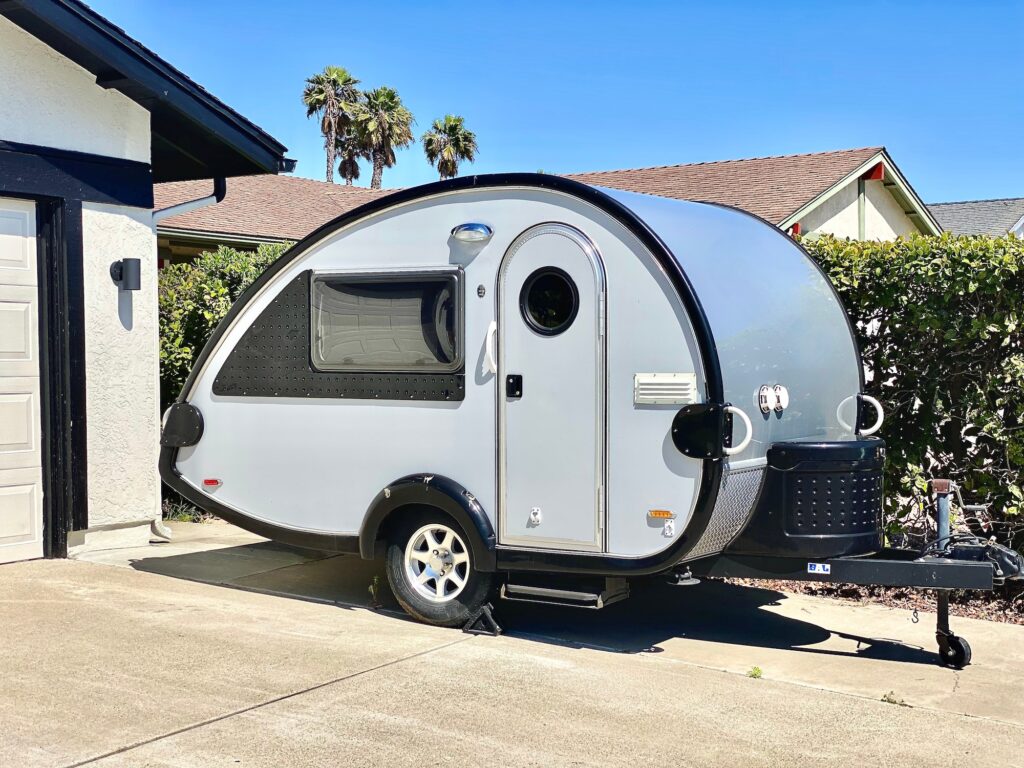
Truck Campers
Truck campers, also known as slide-in campers, are a type of RV that is designed to be mounted on the bed of a pickup truck. They are a great option for those who want the flexibility of being able to easily detach the camper and use their truck for other purposes. Truck campers are typically smaller and more compact than other types of RVs, but they still offer many of the same amenities, such as a sleeping area, a small kitchen, and a bathroom. They can be customized to fit the specific size and shape of the truck bed, and they are generally more affordable than larger RVs. Truck campers are a great option for those who want the convenience of an RV without the expense and maintenance that comes with a larger motorhome.
Need Extra Space?
Making extra space in an RV is essential for comfortable and enjoyable living. One way to create plenty of space is by maximizing storage options. Utilize every inch of available storage space, such as under the bed, inside cabinets, and in overhead compartments. Consider investing in collapsible or compact furniture, such as a table that folds down or a bed that can be stored against the wall during the day. Another way to create extra space is by using the outdoors. Set up a comfortable outdoor living area with chairs, tables, and a portable grill. This allows you to take advantage of the beautiful scenery and enjoy meals and activities outside of the RV. Lastly, consider upgrading to a larger RV or downsizing your belongings to reduce clutter and create more living space. By implementing these tips and tricks, you can maximize the space in your RV and make it feel like a comfortable and spacious home on wheels.
Power
When it comes to powering your RV, there are several options available to choose from. Understanding these options can help you make an informed decision that meets your specific needs and budget.
- Shore Power: Shore power is the most common way to power an RV. It refers to the electrical connection between your RV and an external power source, such as a power pedestal at a campground. Most RVs come equipped with a shore power cord that plugs into a 30- or 50-amp outlet. This power source is reliable, convenient, and provides all the necessary electricity for your RV’s appliances and systems.
- Generator: Generators are a popular option for RVers who want to have power available even when they’re not connected to shore power. A generator is a self-contained power source that runs on gasoline, propane, or diesel fuel. It produces electricity through a built-in alternator and can power your RV’s appliances and systems. Generators can be noisy and require maintenance, but they provide a reliable source of power when you’re off-grid or during power outages.
- Solar Power: Solar power is an eco-friendly and cost-effective option for RVers who want to reduce their dependence on traditional power sources. Solar panels capture energy from the sun and convert it into electricity that can power your RV’s appliances and systems. Solar power is especially useful for boondocking or dry camping, where there are no available power sources. However, solar panels require direct sunlight to function, and their efficiency can be affected by weather conditions.
- Battery Power: Battery power is a necessary component of any RV’s electrical system. RV batteries store power from your shore power connection, generator, or solar panels and provide a source of power when no other sources are available. There are several types of RV batteries available, including lead-acid batteries and lithium-ion batteries. Lithium-ion batteries are becoming increasingly popular due to their longer lifespan, faster charging times, and lighter weight.
Towing your car
Towing a separate vehicle behind your RV can be a great way to explore new destinations while having the convenience and flexibility of a personal vehicle. However, it’s important to choose the right towing method that fits your specific RV and car.
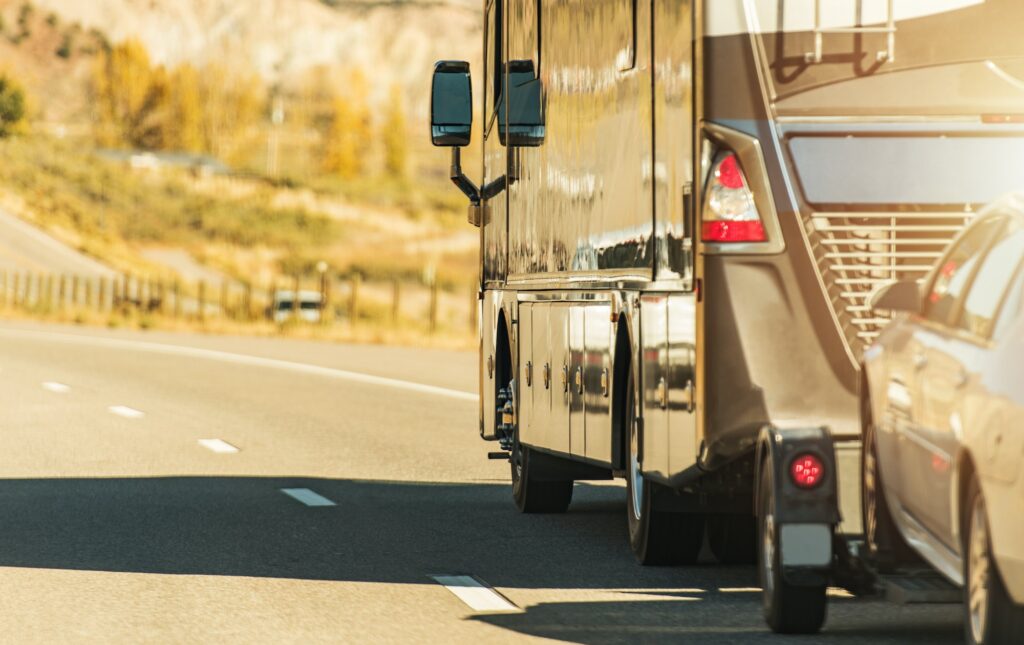
- Tow Dolly: A tow dolly is a small trailer that is a towing vehicle designed to hold the front wheels of your car while the rear wheels remain on the ground. This method is popular for front-wheel drive cars that cannot be flat-towed. Tow dollies can be rented or purchased and are relatively affordable. They are also lightweight towing vehicle and easy to maneuver, making them a great option for RVers who want to tow a car without investing in a larger towing system.
- Flat-Tow: Flat-towing, also known as dinghy towing, involves towing your car with all four wheels on the ground. This method requires a special tow bar that connects the RV and the car and a base plate that is installed on the car’s frame. Flat-towing is a popular option for RVers who want to tow a car that can be easily disconnected and driven separately. It’s important to note that not all cars can be flat-towed, so it’s important to check with your car manufacturer before making this investment.
- Trailer: Another option for towing your car is to use a trailer. This method involves loading your car onto a trailer that is pulled behind your RV. Trailers can be enclosed or open-air and come in a variety of sizes and configurations. This method is popular for RVers who want to tow a larger or heavier car that cannot be flat-towed or for those who want to transport multiple cars or other equipment. However, trailers can be expensive, heavy, and difficult to maneuver in tight spaces.
Choosing a RV based on your travel to locations
When it comes to choosing an RV, one important factor to consider is the location where you’ll be taking it. Different types of RVs are better suited for different types of terrain, climates, and camping experiences.
- National Parks and Forests: If you’re planning on visiting National Parks or Forests, you’ll want to consider an RV that is small and nimble. These parks often have size restrictions for vehicles, and larger RVs may not be able to access certain campsites or roads. A travel trailer or teardrop trailer may be a good choice for these types of destinations, as they are often lightweight and can be easily towed by a smaller vehicle.
- Desert and Arid Regions: If you’re planning on visiting the desert or other arid regions, you’ll want to choose an RV that can handle hot temperatures and potentially rough terrain. A Class B or Class C motorhome may be a good choice for these types of destinations, as they are often well insulated and have air conditioning to keep you cool in the heat. They also have the advantage of being self-contained, so you don’t need to rely on hookups for power or water.
- Coastal Regions: If you’re planning on visiting coastal regions, you’ll want to choose an RV that is resistant to saltwater corrosion and can handle high humidity. A travel trailer or fifth wheel may be a good choice for these types of destinations, as they are often made with materials that can withstand the salty air. They also often have large windows and outdoor living areas that allow you to take advantage of the ocean views.
- Mountainous Regions: If you’re planning on visiting mountainous regions, you’ll want to choose an RV that can handle steep inclines and potentially rough terrain. A Class A or Class C motorhome may be a good choice for these types of destinations, as they often have powerful engines and sturdy chassis that can handle the demands of mountain driving. They also often have large tanks for water and waste, which can be useful if you’re camping in remote locations.
- Urban Areas: If you’re planning on visiting urban areas, you’ll want to choose an RV that is easy to maneuver and park. A Class B motorhome or camper van may be a good choice for these types of destinations, as they are often compact and can navigate through city streets with ease. They also often have amenities like a bathroom and kitchenette, which can be useful if you’re staying in a city for an extended period of time.
Now that we’ve explored the different types of RVs available, let’s look at some real-world examples of how to choose the right type of RV for your needs.
The Solo
One example of someone who may benefit from a Class B camper van is the solo traveler. A Class B camper van is compact, easy to drive, and provides all the essential amenities that a solo traveler needs. It’s perfect for someone who wants to hit the road and explore without the added expense and hassle of a larger RV.
For example, imagine that you’re a young professional who works remotely and wants to travel the country in search of new experiences and adventures. You don’t need a lot of space, but you do need the essentials: a comfortable bed, a kitchenette, a bathroom, and a place to store your gear.
A Class B camper van would be the perfect choice for you. It’s small enough to maneuver in tight spaces, yet spacious enough to provide all the essential amenities that you need. You can park it in a variety of locations, from campgrounds to parking lots, and you can easily set up camp wherever you go. Plus, you’ll save money on gas and maintenance compared to larger RVs.
The Family
Another example of someone who may benefit from a larger RV, such as a Class A or Class C motorhome, is a family. If you’re traveling with children or extended family, you need a comfortable and convenient space that can accommodate everyone. You also need plenty of storage space for gear, toys, and other essentials.
For example, imagine that you’re a family of four who loves to travel and explore new places. You want an RV that can provide all the comforts of home, including a full kitchen, a bathroom, and multiple sleeping areas. You also want an RV that’s easy to drive and maneuver, so you can explore all kinds of destinations.
A Class C motorhome would be the perfect choice for you. It’s spacious enough to provide all the essential amenities that your family needs, yet compact enough to be easy to drive and maneuver. You can travel comfortably and safely, with all the comforts of home right at your fingertips.
Conclusion
Choosing the right type of RV is a crucial decision that can greatly impact your travel experience. It’s important to consider your needs and preferences, as well as your budget, when making your decision. By exploring the different types of RVs available and considering real-world examples, you can make an informed decision that will allow you to enjoy all the benefits of RV travel.



